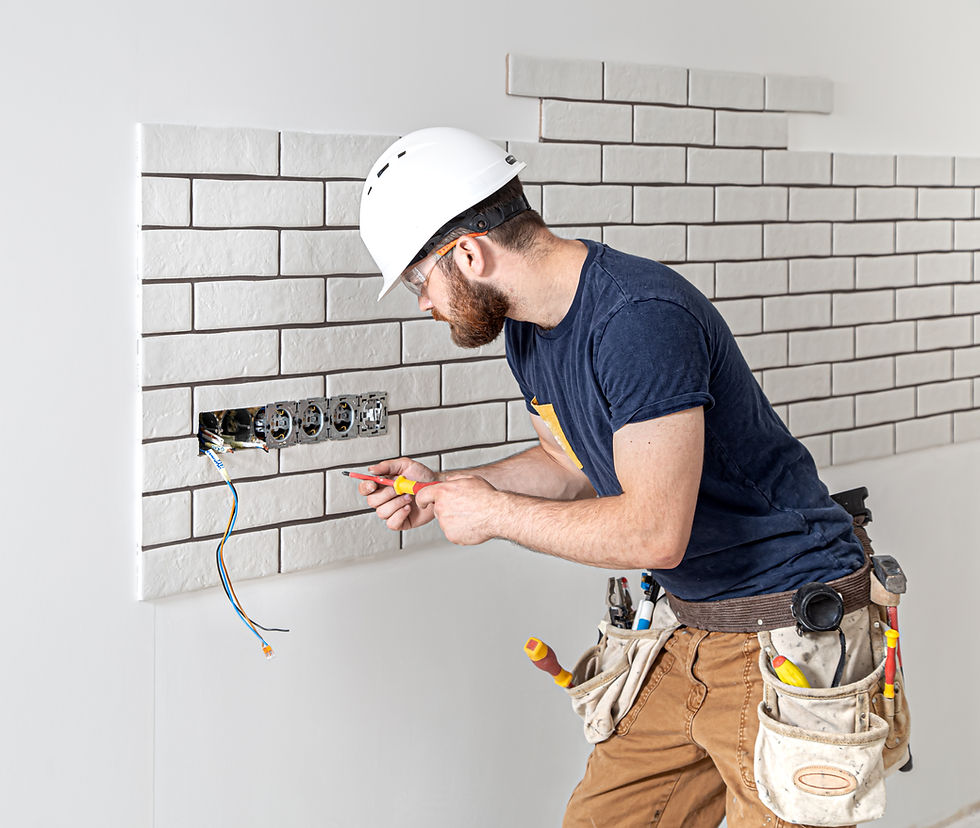Electrical Safety Tips Every Homeowner Should Know
- John Shaw
- Mar 19, 2025
- 3 min read

Introduction
Electricity powers our homes, but it also comes with risks. Faulty wiring, overloaded circuits, and damaged appliances can lead to shocks, fires, or even serious injuries. Whether you're handling minor electrical tasks or simply using everyday appliances, understanding key safety measures is essential. This guide shares important electrical safety tips that every homeowner should follow.
1. Avoid Overloading Circuits
Plugging too many devices into one outlet can cause overheating, increasing the risk of electrical fires. Use extension cords sparingly and ensure that high-wattage appliances, such as ovens or air conditioners, have dedicated circuits. If you frequently experience tripped breakers, consult a local electrician to assess your home’s electrical load.
2. Regularly Inspect Cords and Outlets
Frayed, cracked, or exposed wires pose a major hazard. Always check the condition of power cords and replace any that show signs of wear. Additionally, loose outlets or switches should be repaired immediately by a qualified electrician to prevent electrical shocks or short circuits.
3. Keep Electrical Devices Away from Water
Water and electricity are a dangerous combination. To prevent electrocution, keep electrical appliances, outlets, and extension cords away from sinks, bathtubs, and wet surfaces. Install Ground Fault Circuit Interrupters (GFCIs) in bathrooms, kitchens, and outdoor areas to cut power when moisture is detected.
4. Use the Right Wattage for Light Bulbs
Always use bulbs that match the recommended wattage for your fixtures. Overloading a light fixture with a high-wattage bulb can lead to overheating and even fires. If you’re unsure about the wattage limits in your home, seek advice from a trusted electrical contractor.
5. Install Surge Protectors
Power surges can damage expensive appliances and electronics. Installing surge protectors helps safeguard your devices from sudden voltage spikes. For added protection, consider having whole-house surge protection installed by a professional electrical services provider.
6. Schedule Regular Electrical Inspections
An outdated electrical system can be a hidden danger. Periodic inspections by local electricians help identify potential hazards like faulty wiring, outdated panels, or overloaded circuits. Homes over 20 years old should undergo an inspection to ensure they meet modern safety standards.
7. Never DIY Complex Electrical Work
While changing a light bulb is safe, attempting complex electrical repairs without expertise can be life-threatening. Tasks such as rewiring, installing outlets, or upgrading circuit breakers should always be handled by a certified electrician. Improper installations can lead to electrical fires or system failures.
8. Teach Electrical Safety to Children
Young children should be taught the dangers of electricity. Keep outlets covered with safety caps and secure loose cords to prevent tripping hazards. Encourage children to avoid sticking objects into outlets and to seek help when handling electrical devices.
9. Prepare for Electrical Emergencies
Power outages, exposed wires, or electrical fires require immediate action. Ensure your home has a working fire extinguisher designed for electrical fires. If an electrical emergency occurs, turn off the power at the main breaker and contact an emergency electrician for assistance.
10. Upgrade Old Wiring and Panels
Outdated wiring and old circuit breakers can struggle to handle modern electrical demands. If you notice flickering lights, frequent breaker trips, or burning smells from outlets, your electrical system may need an upgrade. A professional electrical services provider can inspect your wiring and recommend necessary improvements.
FAQs
Q1: How often should I schedule an electrical inspection?
It’s recommended to have a professional inspection every 3–5 years, especially in older homes. If you experience electrical issues frequently, consult a local electrician sooner.
Q2: Why do my circuit breakers keep tripping?
Breakers trip due to overloaded circuits, short circuits, or ground faults. If this happens often, contact an electrical contractor to evaluate the issue.
Q3: Can I replace a light switch or outlet myself?
While simple replacements may seem easy, it’s always best to hire a licensed electrician to ensure proper wiring and safety compliance.
Q4: What should I do if I get an electrical shock?
If it’s mild, monitor your symptoms and seek medical advice if needed. For severe shocks, call emergency services immediately.
Conclusion
Electrical safety is a critical aspect of home maintenance. Following these tips can help prevent accidents, protect your appliances, and ensure a safe living environment. If you need professional assistance, Rytec Electrical offers expert electrical services, from inspections to full system upgrades, ensuring your home remains safe and efficient.



Comments